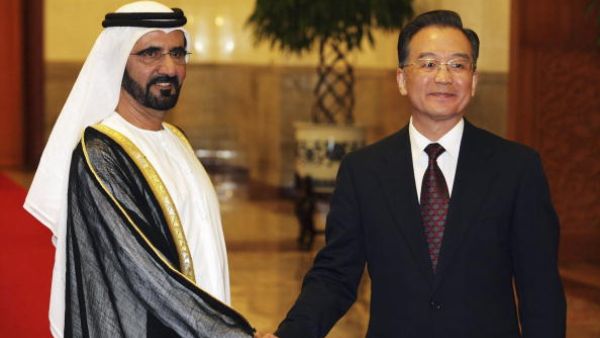The number of people jet-setting from China to UAE is growing along with the trade between the two countries and financial institutions are cashing in.
Banks in the country have recently introduced new financial services to cater to the growing demand from the Chinese community. Among the offerings include Renminbi (RMB) deposit accounts and a banking platform to serve Chinese businesses in the country.
Statistics show that the UAE is home to about 5,000 Chinese-run enterprises and attracts thousands of visitors from China every year.
Aware of the growing demand and optimistic about the prospects of the Asian tiger’s currency, HSBC announced last week the launch of a series of RMB deposit accounts. The bank believes that China’s RMB, otherwise known as the yuan, is on track to join the US greenback and the euro “as one of the world’s top three trading currencies”.
Last December, the Commercial Bank of Dubai launched a Chinese banking platform called TianLong to support the business and personal banking requirements of Chinese small and medium enterprises (SMEs). Among the services offered include Chinese language documentation, Chinese speaking relationship managers, dedicated Chinese speaking call centre agents and RMB accounts.
HSBC’s new service, however, is not just for Chinese customers, but also for other individuals looking to invest in RMB. Interested customers can choose from a range of retail banking products and services, including RMB current accounts, savings accounts and term deposits.
Gifford Nakajima, regional head of wealth development, retail banking and wealth management at HSBC, said that the rapid growth in trade and business ties, in addition to Dubai’s increasing popularity as a tourist destination is driving the growing demand from Chinese customers.
While Chinese customers are growing in numbers and trade ties increase, Nakajima also envisioned the demand for RMB to grow.
“As one of the world’s top three trading currencies, China is expected to settle 30 per cent of its annual trade in RMB, which is equivalent to approximately $2 trillion. With this currency becoming increasingly internaliszed and more opportunities opening up for individuals to invest in the growth of this Asian economic power, HSBC is providing its customers with the opportunity to do so,” said Nakajima.
“Over the years, the bank has developed its expertise in the RMB, which is rooted in our deep understanding in China. Customers can leverage our global connectivity and unrivalled knowledge of the RMB to benefit from the potential of this emerging currency and participate in China’s economic growth,” he added.
In addition to building their RMB savings, the suite of new products can help HSBC customers earn “potentially higher interest rates” on RMB accounts as compared to other currencies like the dirham, US dollar or the GBP.
“We already have in place a range of RMB business banking services that Chinese customers can use in the UAE. However, this is the first time we have launched RMB denominated products for our retail customers,” explained Nakajima.
More banks to tap into Chinese market
With the size of the Chinese community and their businesses in the UAE growing, more banks are expected to tap into the Asian market.
As of the first half of 2013, the number of Chinese guests staying in Dubai’s hotels and hotel apartments reached nearly 150,000, up 15.7 per cent from a year ago.
According to the latest report from Dubai’s Department of Tourism and Commerce Marketing (DTCM), China emerged as the 9th top source market for inward visitor traffic into Dubai in the first six months of the year.
Trade between China and UAE, which grew to $36.6 billion in 2011, is expected hit $60 billion in 2015.
“We also see that the number of Chinese companies with membership in the Dubai Chamber have increased 18 per cent over the last two years, now totalling over 2,400. As a result, these growing business activities are fuelling the closer ties between UAE and China, which is in turn driving Chinese residents to the country,” said Gifford Nakajima of HSBC.








